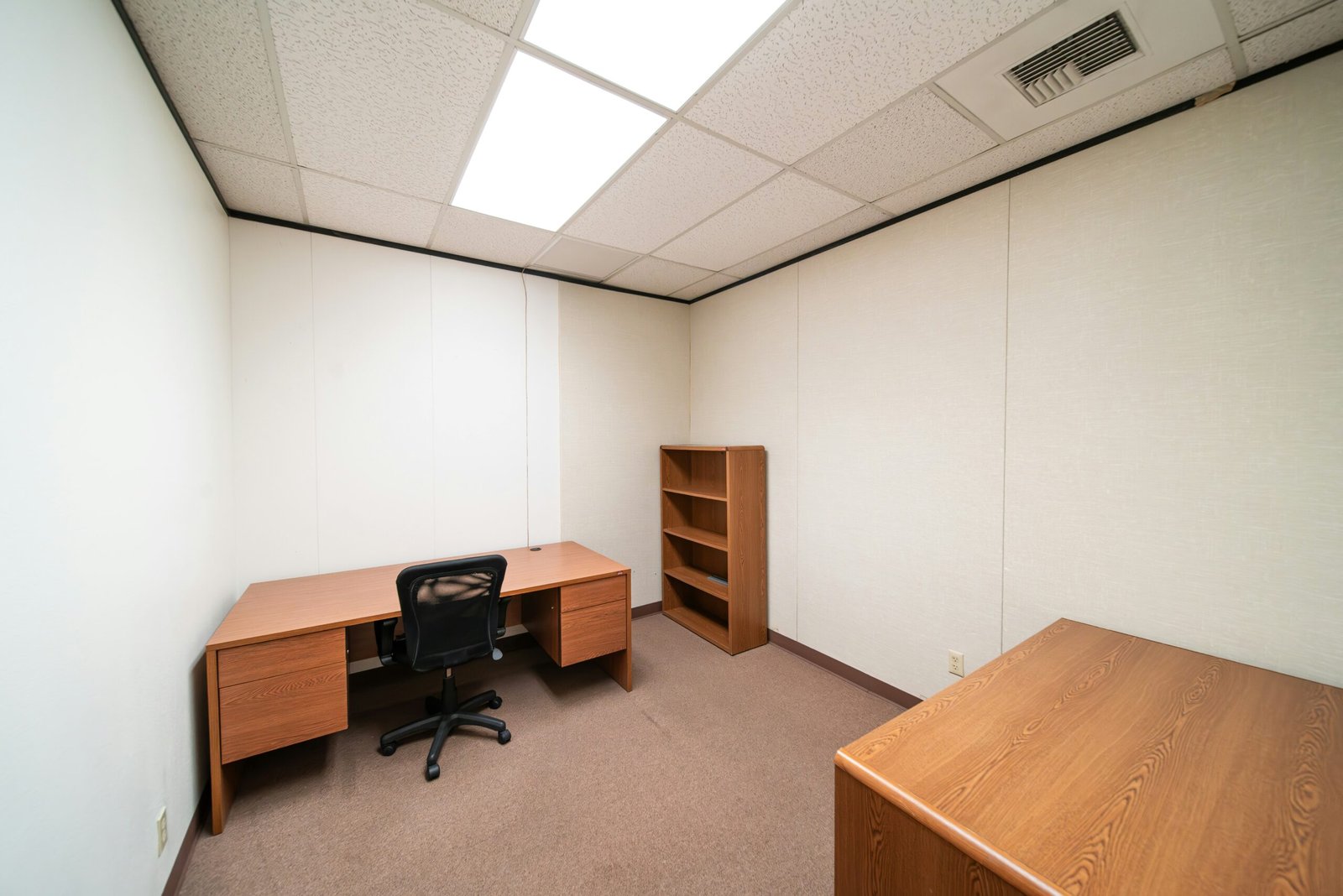Introduction to Vastu Shastra
Vastu Shastra, an ancient Indian architectural science, delineates the principles for design and construction in harmony with nature. Originating from ancient texts known as the Vedas, this discipline integrates spirituality with physical space to create environments that promote health, prosperity, and overall well-being. It emphasizes the alignment of structures with cosmic energies, ensuring that the surroundings are conducive to positive energy flow, or “prana.”
Historically, Vastu Shastra was utilized by architects and kings to ensure that their palaces and temples resonated with celestial forces. However, its principles extend beyond large structures, as they are equally applicable to homes, offices, and public buildings. By adhering to Vastu guidelines, individuals can enhance their living spaces, encouraging peace, abundance, and optimal health. The foundations of Vastu are rooted in understanding the five elements—earth, water, fire, air, and space—and how they interact with human life.
In contemporary society, Vastu Shastra provides insights into how specific placements of furniture, doors, and colors in a space can significantly impact the inhabitants’ emotional and physical health. For instance, a well-aligned room can enhance concentration and productivity, while a poorly designed area may cause stress or discomfort. The significance of Vastu principles lies in their ability to create a harmony between individuals and their surroundings, fostering a lifestyle that promotes balance and stability. Thus, understanding Vastu Shastra is vital for anyone seeking to improve their living or working conditions.
Understanding Common Vastu Problems
In the realm of Vastu Shastra, which is the traditional Indian system of architecture and design, the layout and orientation of spaces profoundly influence the inhabitants’ well-being. Various problems, such as financial difficulties, health issues, and strained relationships, often arise due to Vastu imbalances in homes and workplaces. Identifying these common Vastu-related issues can be crucial in seeking effective remedies and improving one’s lifestyle.
Financial difficulties are a prevalent concern for many individuals and families. Often, the financial setbacks can be traced back to improper placement of key areas in a home, such as the main entrance, kitchen, or the location of the safe. According to Vastu principles, the southeast corner of a property is related to wealth. An obstruction or imbalanced orientation in this area may lead to persistent economic struggles and hinder prosperity. By optimizing the Vastu of this space, individuals can create an environment that attracts positive financial energies.
Health issues are another significant aspect influenced by Vastu. Poorly designed spaces, such as bedrooms that lack proper ventilation or bathrooms located inauspiciously, can lead to various ailments. It is suggested that the northwest direction is critical for maintaining health, and disturbances in this zone may result in stress and health complications. By aligning these areas with Vastu guidelines, residents can promote better physical and mental well-being.
Moreover, relationship strains among family members or colleagues can also arise from Vastu-related imbalances in living and working spaces. The southwest corner is deemed essential for stability and unity in relationships. If this area is compromised, it may lead to conflicts and miscommunication. Implementing Vastu corrections in this sector can foster harmony and emotional support among residents.
Awareness of these common Vastu problems lays the groundwork for exploring practical remedies, enabling individuals to enhance their living conditions and overall quality of life.
Vastu Remedies for Financial Stability
Achieving financial stability is a goal that many individuals aspire to, and incorporating Vastu Shastra principles into your living or working space can play a significant role in enhancing prosperity. Utilizing specific remedies rooted in Vastu can create an environment conducive to financial growth. One effective strategy is to focus on the placement of furniture, especially in relation to the entrance and wealth corner of the space.
The wealth corner, traditionally located in the southeast, should be kept clutter-free and well-lit. Essential furnishings, such as your desk or important seating arrangements, should face this direction to attract and enhance wealth energy. Additionally, ensuring that office spaces are oriented towards the northeast can promote clarity and positive energy, essential for making sound financial decisions. Avoid placing heavy furniture in this corner, as it may block energy flow.
❤️ Powerful Real Love Spells That Work
Attract true love, reunite with your partner, and strengthen relationships with proven magic spells.
Incorporating specific colors and objects can also bolster financial stability. Colors like green, gold, and purple are believed to attract wealth and prosperity. Painting the walls of your living room or home office with these colors, or adding colorful decor, can amplify positive energy. Furthermore, displaying symbols of wealth, such as a money plant or a bowl of coins, reinforces the intention of inviting prosperity into your life.
Another practical tip involves the use of mirrors. Positioning mirrors in such a way that they reflect wealth-associated items can double their energy and presence in your space. Mirrors should be placed intelligently; avoid placing them directly opposite the main entrance, as this can reflect wealth out of the space. Small adjustments, alongside a conscious effort to integrate Vastu principles, can lead to a noticeable difference in your financial situation over time.
Enhancing Health and Wellbeing through Vastu
The ancient practice of Vastu Shastra provides a holistic approach to design and architecture, emphasizing harmony between man and nature. By implementing Vastu remedies, individuals can significantly improve their overall health and wellbeing. Central to this philosophy is the understanding that the arrangement of spaces within a home directly influences physical and mental health. Key areas that warrant attention include bedrooms, kitchens, and living spaces, which play crucial roles in enhancing the quality of life.
In Vastu, the bedroom is considered a sanctuary for rest and rejuvenation. It is recommended to position the bed in the southwest corner of the room, promoting a sense of stability and security. Furthermore, the use of soft colors and organized surroundings can reduce stress and foster a tranquil atmosphere conducive to restful sleep. Ventilation is also essential; ensuring fresh air circulates not only enhances the room’s energy but also aids in maintaining physical health.
Similarly, the kitchen is the heart of the home and is associated with nourishment and vitality. Adopting Vastu principles in this space, such as orienting the cooking area towards the southeast, can positively affect digestion and health. Natural light should flood the kitchen; thus, windows should be unobstructed to allow sunlight in, bolstering the mood and creating a vibrant working environment.
Incorporating elements of nature, including plants and natural materials, can further enhance wellbeing. Consider positioning indoor plants strategically to improve air quality, infuse life into the space, and promote mental clarity. Lastly, allowing for ample natural light and air within the home is paramount, as it brings life and energy, reinforcing a healthy ambiance. By adhering to these Vastu remedies, individuals can foster a healthier living environment that nurtures both body and mind.
Improving Relationships with Vastu Adjustments
In the realm of Vastu Shastra, the ancient Indian science of architecture and design, the arrangement of space plays a significant role in shaping interpersonal relationships. By making subtle adjustments to your living environment, you can enhance the dynamics within your family and social circles, fostering a more harmonious atmosphere.
One of the foundational principles of Vastu focuses on the positioning of rooms. For instance, placing the living room in the northeast or east part of the house can promote positive interactions among family members. This orientation invites ample natural light and fresh air, which are essential for vibrant family life. Similarly, the coordination of shared spaces is key. A spacious and well-lit dining area, ideally located in the west or southwest, is conducive to nourishing conversations and strengthening bonds during meal times.
The color scheme and decor also hold substantial weight in fostering relationships. Utilizing soft and warm colors in communal areas can enhance emotional connectivity. Earthy tones, such as beige or light yellow, evoke warmth and calmness, encouraging open communication. Incorporating meaningful decor items, such as family photographs or artwork, invites nostalgia and shared memories, reinforcing the bonds among inhabitants.
Additionally, the placement of furniture is crucial. Arranging seating in a circular or U-shape setup encourages conversation, making every participant feel included. It is also beneficial to avoid sharp corners in furniture that can create negative energy or discomfort. Clear pathways in shared spaces enhance movement and flow, allowing residents to interact effortlessly.
💰 Powerful Spells for Wealth & Prosperity
Attract money, success, and financial abundance with real magic spells that bring results fast.
Ultimately, the application of Vastu principles can create a nurturing environment that fosters peace, understanding, and empathy among family members. By fine-tuning the physical space in line with these recommendations, you can lay a foundational support for healthier and more cohesive relationships in everyday life.
Vastu Solutions for Career Growth
Vastu Shastra, the ancient Indian science of architecture, offers a multitude of remedies aimed at fostering career growth and enhancing professional opportunities. By optimizing the workspace and ensuring that specific elements are positioned correctly, individuals can create an environment conducive to success and advancement. One key aspect of Vastu is the layout of the workspace, which can significantly influence one’s professional journey.
To harness the benefits of Vastu for career enhancement, it is essential to arrange your workspace thoughtfully. Positioning the desk in the south or west direction promotes stability and enhances focus, while facing north or east is believed to encourage new opportunities. Additionally, clutter and chaos can obstruct positive energy flow, so maintaining an organized and clean workspace is critical. Regularly decluttering your desk can lead to improved concentration and clearer decision-making.
Furthermore, incorporating specific elements into your workspace can strengthen career aspirations. For instance, placing a mirror on the wall opposite the entrance can attract opportunities towards you, while the use of plants, particularly money plants, can symbolize prosperity and growth. It is also advised to keep metallic objects, such as brass or copper items, on the desk, as they are believed to enhance wealth and mental clarity.
To summarize, individuals looking to advance their careers can implement effective Vastu remedies by focusing on workspace organization, optimal layout choices, and the integration of specific elements. By creating a harmonious environment that nurtures ambition and growth, one can significantly impact their professional trajectory. Through these simple adjustments, anyone can elevate their career prospects and foster a more fulfilling professional life.
Creating a Harmonious Home Environment
Establishing a harmonious home environment is fundamental to enhancing the quality of life within a household. Vastu Shastra, the ancient Indian science of architecture, provides valuable insights into how the arrangement of space can influence well-being. By following specific Vastu tips, individuals can create a balanced atmosphere that promotes peace and tranquility. One effective technique is the strategic placement of plants. Incorporating indoor plants not only enhances aesthetic appeal but also purifies the air and fosters positive energy. Plants such as the peace lily or pothos are ideal for improving feng shui, bringing vitality into the living spaces.
Another important consideration in Vastu is the placement of mirrors. Mirrors can help to reflect positive energy and light, thereby invigorating a room. However, their location is critical; it is advised to avoid placing mirrors directly facing the front door, as this can lead to the swift exit of positive energies. Instead, consider placing mirrors in locations that enhance the room’s spaciousness and brightness, such as across from windows or in hallways.
Artwork also plays a significant role in cultivating a harmonious environment. Art that evokes positive emotions, such as images of nature or joyful scenes, can enhance the energy of any space. When selecting artwork, consider pieces that resonate with personal values and aspirations, as they can serve as constant reminders of positivity and balance. It is also essential to keep walls decluttered and well-maintained, as visual chaos can lead to mental clutter and hinder the flow of energy.
Incorporating these simple Vastu remedies can significantly improve one’s living space, creating an atmosphere conducive to relaxation and happiness. By mindfully arranging plants, mirrors, and artwork, individuals can feel more aligned and balanced in their environments, ultimately promoting overall tranquility within the home.
Simple Vastu Corrections for Everyday Problems
Vastu Shastra, the ancient architectural science, offers a variety of solutions that can address common daily issues such as restlessness, reduced focus, or the presence of negative energy in one’s living environment. Implementing simple Vastu corrections can create a harmonious atmosphere, thereby enhancing overall well-being. Here are some actionable strategies that can be easily integrated into your everyday life.
For individuals experiencing restless sleep, the positioning of the bed can play a crucial role. It’s recommended to place the bed in the southwest corner of the bedroom, ensuring that the head rests against the wall. This alignment is believed to promote better sleep quality and relaxation. Additionally, avoiding clutter under the bed and ensuring the space is well-ventilated can further enhance sleep conditions.
Lack of focus and clarity can often be traced back to the work environment. To enhance concentration, it is advisable to position the study or work desk in the northeast direction of the room. Facing north while working not only fosters mental clarity but also channelizes positive energy. Further, incorporating plants such as money plants or peace lilies can purify the air and create an invigorating atmosphere conducive to focus.
Negative energy can sometimes infiltrate a space, leading to feelings of discomfort. To counteract this, strategically placing a mirror in the entrance hall is a well-known Vastu remedy. Mirrors reflect energy and can help uplift the mood within the home. Additionally, keeping the main entrance well-lit and welcoming is crucial to dispelling negativity. Simple practices like regularly opening windows for ventilation and incorporating calming colors in décor can also foster a positive environment.
By implementing these straightforward Vastu corrections, it is possible to alleviate common issues and create a more tranquil living or working space. These recommendations make Vastu practices accessible and manageable for anyone interested in enhancing their everyday life.
Conclusion: Embracing Vastu for a Better Life
As we navigate the various challenges of modern living, the ancient principles of Vastu Shastra offer valuable insights into creating harmonious environments. By understanding and applying Vastu remedies, individuals can significantly enhance their overall quality of life. These guidelines provide practical solutions that address common issues, such as relationship dynamics, health concerns, and financial stability. Whether you are facing persistent obstacles or simply seeking to improve your surroundings, Vastu principles can serve as a guiding framework.
Implementing Vastu remedies does not require immense effort or drastic lifestyle changes; rather, it often involves simple adjustments in the arrangement and orientation of spaces. By paying attention to the layout of your home or office, or even the placement of objects, you can harness positive energy and foster a sense of well-being. For instance, positioning the bed in an auspicious direction or ensuring that the entrance is unobstructed can create a more inviting atmosphere. Such modifications can lead to unexpected positive transformations, enhancing personal and professional relationships.
Moreover, embracing Vastu encourages a mindful approach to one’s living and working environments. It invites individuals to reflect on the emotional and physical impacts of their surroundings. By considering how areas of life might be improved through Vastu, one can cultivate a renewed sense of purpose and balance. The integration of these principles fosters a deeper connection with one’s environment, ultimately resulting in increased harmony and contentment.
In summary, the benefits of incorporating Vastu remedies into daily life are profound. Simple changes in spatial arrangements can lead to significant improvements in various aspects, including health, happiness, and prosperity. Reflecting on your own environments and employing Vastu principles may cultivate a path toward a more fulfilling and enriched life.






